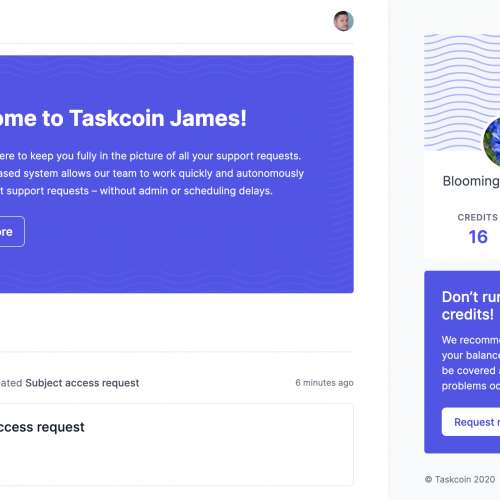 Matt Penneycard isn’t your typical VC. After graduating from Durham University with a law degree and realising that he didn’t want to be a lawyer, Matt interned with a VC fund in the US, before joining Octopus Investments as one of their first hires in 2002.
Matt Penneycard isn’t your typical VC. After graduating from Durham University with a law degree and realising that he didn’t want to be a lawyer, Matt interned with a VC fund in the US, before joining Octopus Investments as one of their first hires in 2002.
Apart from a brief stint in private equity and leveraged buyouts (“I didn’t enjoy it, I wasn’t very good at it. I pretty quickly found my way back to smaller companies and earlier stage deals”), Matt has worked with early stage startups ever since, and is currently heading up Downing Ventures, the department of Downing that invests in early stage tech startups in the UK.
We caught up with Matt to chat about early stage startups, the current state of the UK and US investment scenes and finding the right level of work-life balance…
Simpleweb: What do you look for in early stage investments?
Matt Penneycard: “We look for 2 things — people and a market opportunity. We’re trying to invest at the intersection of those 2 things.
“Market opportunity is easier — we’re looking for very big market opportunities. That might be a market that can be disrupted by technology, or it might be a brand new market, but something that we think there’s an opportunity to build a really big business. That means something that has the potential to be worth a few hundred million. We don’t need unicorns and that BS to make our returns work.
“The hard bit is the people. We’re looking for a combination of characteristics amongst the founding team. The obvious ones are things like massive raw processing power of the brain. We’re also looking for humility. We want people that are not ego-driven, which is slightly contrarian in some tech circles, but we want people that are going to listen, not necessarily to us… but if they’re not going to listen to us, they’re not going to listen to important people like customers in the future.
“We want grit. It’s going to be a bumpy road…There’s going to be a lot of things to deal with so we need to people who have got grit.
“We also look for an enormous and believable ambition. We want people who are building a business for a really personal, passionate reason. We don’t want people who are building a business because they think they can sell it to Facebook for $100m in 3 years times, that’s not an authentic reason for building a business that I want to invest in.”
Simpleweb: How do you know when there is a good market opportunity?
Matt Penneycard: “People always have a total addressable market slide in their deck and it always says it’s a beast of a market. The lazy inference that I, as a new investor, am supposed to make is ‘oh, if we capture 2% of that, we’ve got a $200m revenue business’. That’s BS, because that’s not how market opportunities really work.
“We try and do our own addressable market analysis from the bottom up, rather than the top down. We look at the product and the business model that might be applied and the number of real customers that we think there might be. Then we do the maths to figure out what we conservatively think is addressable as a market of customers and revenues.
“We also try very strongly not to anchor to a particular view on a market. For example, if I start the year thinking VR’s cool but it’s a long way from being commercialised, I’m going to be stuck in that view and I’m probably going to miss the market opportunity for VR. So instead, we try to constantly challenge our preconceptions.”
Simpleweb: What if you do a total addressable market analysis and come up with something completely different?
Matt Penneycard: “That’s brilliant… I can go to the startup team and see what they say. If they react very defensively, or very aggressively, or even on the back foot, all of those things are little red flags for me that these aren’t the right characteristics that we’re looking for.”
Simpleweb: What do you think is good and bad about the current investment scene in the UK?
Matt Penneycard: “What’s bad about the UK investment scene, and it is changing… is the risk appetite, there’s not enough risk capital here. The government has had to do things like SEIS and EIS… to get capital flowing into these opportunities.
“The UK is basically fat and happy. The UK is a like an old guy who’s made their money and now sits in a golf club and doesn’t risk any capital. It is changing, but there still needs to be much more risk appetite at the capital provider level, at the limited partner level, at the institutional level. Tech has democratised the capital markets and it doesn’t cost $10m to build a software company anymore, so it’s not just the purview of a few funds on Sand Hill Road in Silicon Valley, now you can do this stuff anywhere. People need to understand that and back that.
“There’s a massive power imbalance between VCs and entrepreneurs in the UK which is bullshit. We all know that the entrepreneurs are the people who are going to create value, but because there’s such limited capital and so many people trying to do startups, it creates this imbalance of power of the people who want the money and the people who have it, and that’s really unhelpful for the industry. It just means that people spend so long trying to raise money… when they should be building their companies.
“People in the UK are obsessed with valuations and keeping them as low as possible. The reason for that is because there hasn’t been a ready exit market for UK tech companies, not like the Valley where you can afford to pay bigger prices because there’s much more liquidity in the market. There’s a real problem in that, because the scarcity of capital means they can do that, they [investors] say ‘well okay we’ll give you the money but it’s at this price’, so the US funds looking at UK companies can end up saying, ‘oh I’d love to invest, but the team’s been so diluted by all these crappy valuations’.
“I could invest £500k in a startup today and buy 40% of the company if I wanted to, but that’s a stupid trade for me to do because sure, I own a big stake in the company, but by the time we’ve put more money in, by the time it gets to Series A, the founders are going to be so diluted that series A funders aren’t going to want to invest without a massive recap on the company which is going to really impact our existing investors.”
Downing Ventures make seed stage investments in technology startups. Find out more at www.downingventures.com.
If you want to collaborate with Simpleweb, get in touch today.
If you’d like to discuss your startup or project, get in touch with Simpleweb today.



